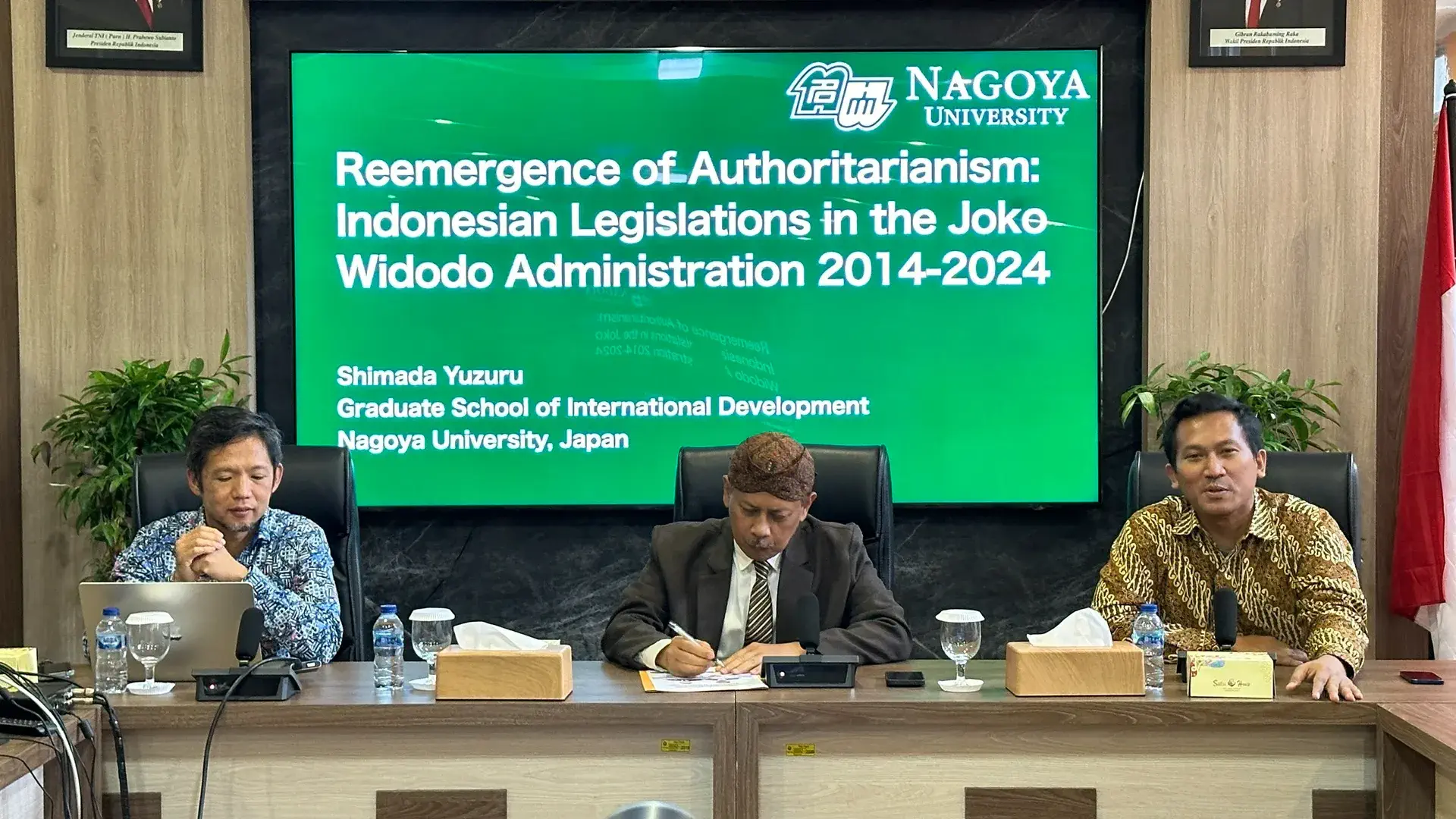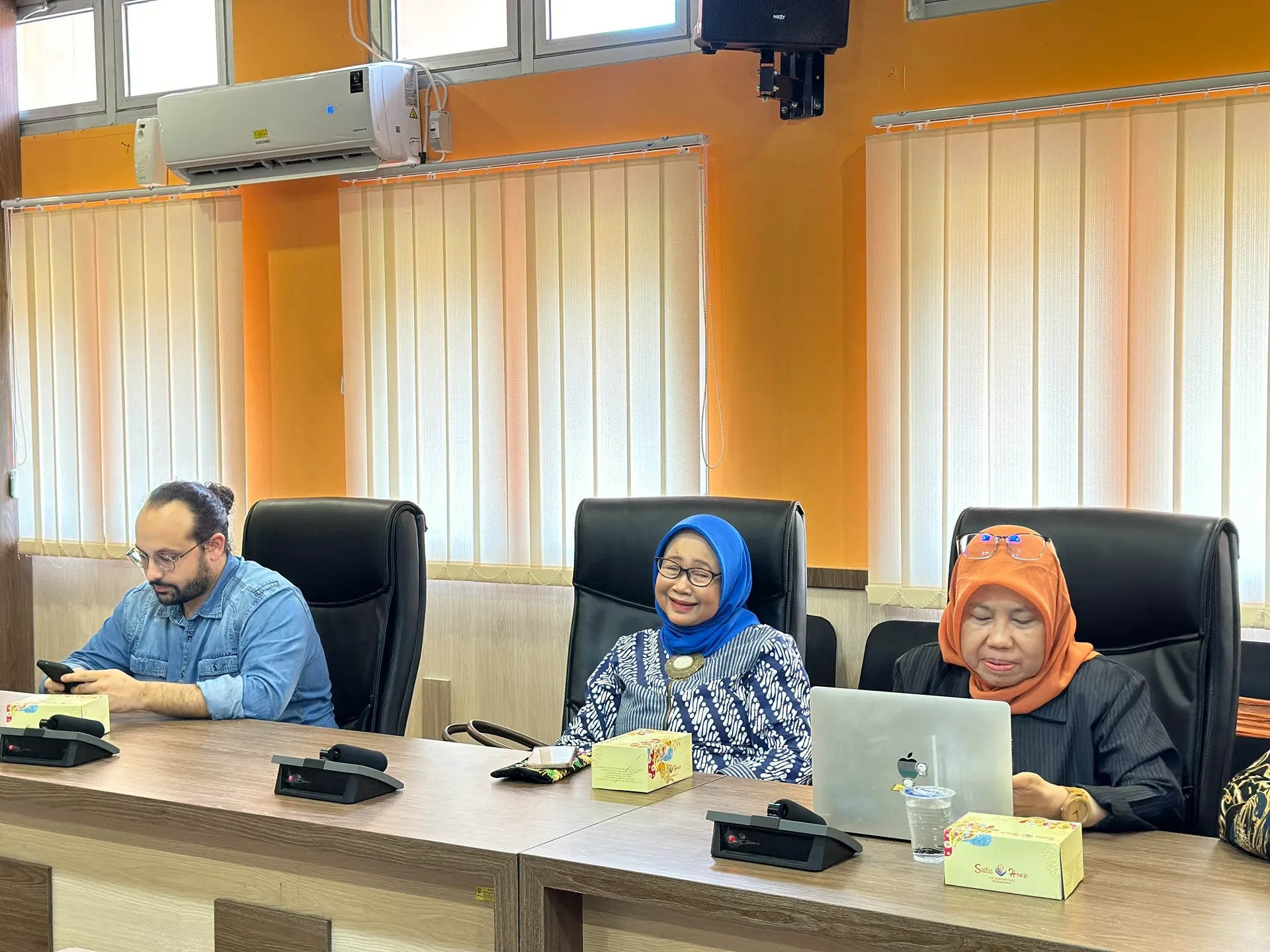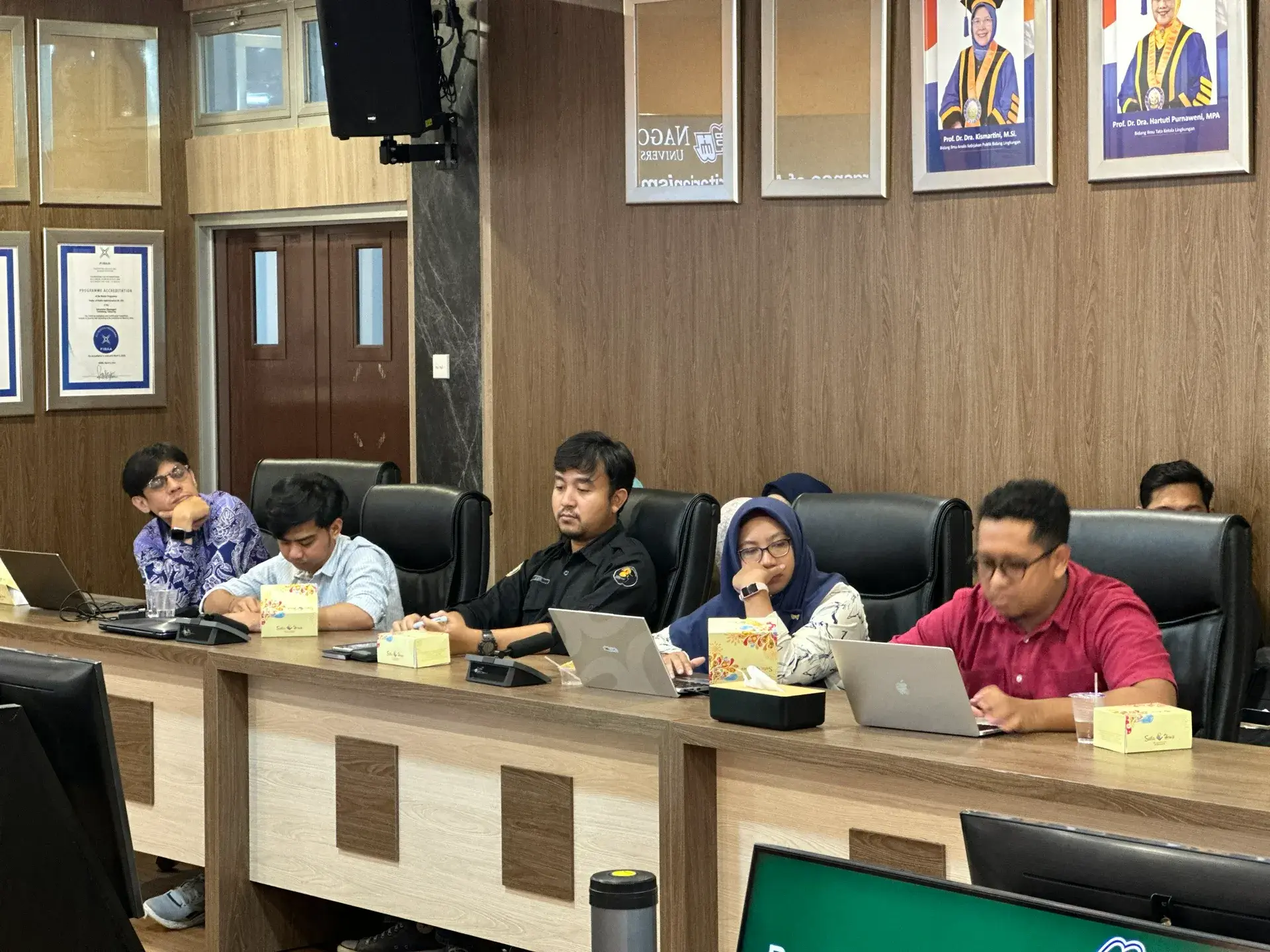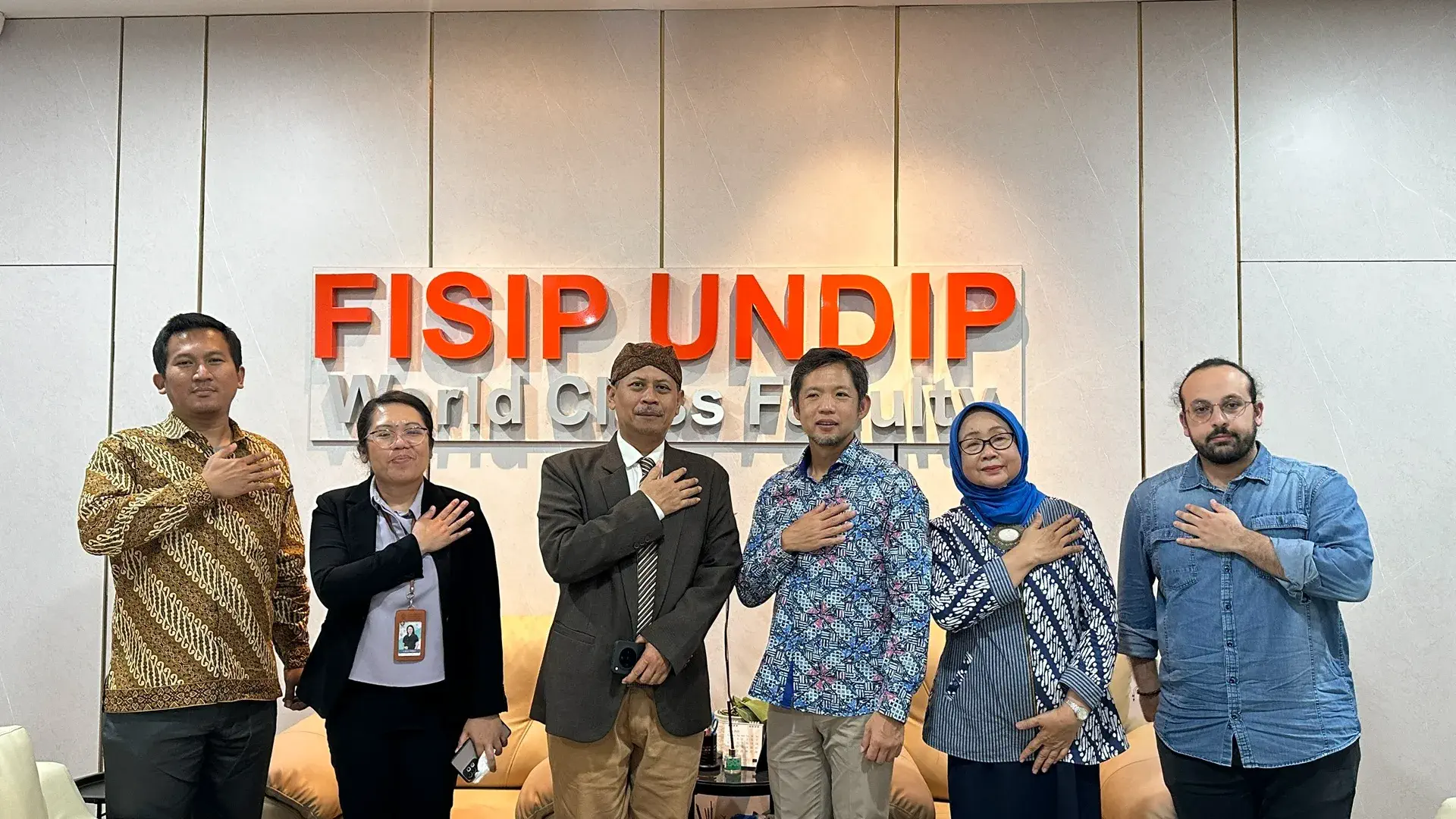Semarang (14/08) – Understanding the dynamics of democracy and politics in Asia has become increasingly important amid the complexity of global challenges, particularly for students and academics in the fields of social and political sciences. In an effort to enrich scholarly insights, the Department of Politics and Governmental Studies, Faculty of Social and Political Sciences (FISIP) at Universitas Diponegoro (Undip), organized a Guest Lecture titled “Legal Changes During Joko Widodo’s Administration – Backsliding of Democracy?” The event featured Prof. Yuzuru Shimada from the Graduate School of International Development at Nagoya University, Japan, as the keynote speaker, along with two discussants from FISIP Undip: Dr. Dra. Kushandajani, M.S., and Dr. Sos. Dra. Fitriyah, M.S. The lecture was held on Thursday, August 14, 2025, in the Senate Meeting Room, Building A, 2nd Floor, FISIP Undip Tembalang Campus.
In his opening remarks, the Dean of FISIP Undip, Dr. Drs. Teguh Yuwono, M.Pol.Admin., expressed his appreciation for Prof. Shimada’s presence, stating, “Thanks to Prof. Shimada for your positive contribution to our University.” This guest lecture provided a valuable opportunity for undergraduate and postgraduate students, as well as the academic community, to delve into contemporary democratic issues in Indonesia from an international perspective.

In his presentation, Prof. Shimada examined the phenomenon of democratic backsliding in Indonesia during Joko Widodo’s administration (2014–2024). He highlighted how a number of legal products during this period weakened civil liberties, reduced oversight of state authority, and marginalized minority groups while promoting deregulation. Several critical laws, such as the Electronic Information and Transactions Law (ITE Law) and the revision of the Indonesian Criminal Code (KUHP), were seen as criminalizing dissent and targeting marginalized communities. This reflects a trend of “majoritarianism without constitutionalism.”
As quoted from his research, “The combination of the majoritarianism institutionalized by the Constitution after democratization and the illiberal legacy that remained from the authoritarian regime has contributed to curbing broad participation and the inclusiveness of marginalized people in Indonesian legislative policy.” Although there were some progressive policies, such as protections for women, the overall legislative landscape during this period indicated a decline in democratic quality and civil liberties.
The event continued with a Discussion session, allowing active participation from the attendees. Through this forum, the activity aimed to broaden participants’ understanding of democratic challenges in Indonesia and Asia, while encouraging critical academic discourse. By presenting international perspectives and in-depth analysis, FISIP Undip remains committed to strengthening scholarly traditions relevant to global political developments.
 |
 |

